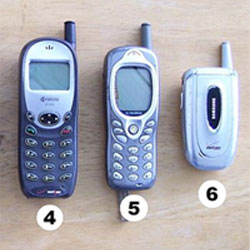Cash-strapped Zimbabwe to tax mobile phones

Harare is facing a revenue crisis so severe it has been forced to stagger civil servants' paydays as businesses have closed, foreign investment has slumped and imports have risen.
Finance Minister Patrick Chinamasa cut his output for economic growth to 3.1% this year, from a previous forecast of 6.1%, "in view of under-performance in manufacturing".
"The slowdown in gross domestic product growth is also reflected in reduced revenue collections, depressed exports and imports," he said in his mid-term budget speech to parliament.
To boost government coffers, Chinamasa announced a 5% increase in mobile phone airtime and a 25% import duty on mobile phone handsets.
Excise duty on petrol will go up to 30 US cents from 25 cents (€0.19 to €0.23) a litre and the import duty on motor vehicles will rise by between 15 and 20%.
"Additional revenue collection will be unavoidable," Chinamasa said.
Zimbabwe's economy has been on a downturn for over a decade that has seen companies shutting down, downsizing or migrating to neighbouring countries.
President Robert Mugabe has led the country since 1980 but his decades in power have increasingly been characterised by corruption, economic crisis and persecution of political opponents.
Central Bank chief John Mangudya last month said foreign investment more than halved in the first half of 2014, warning that Zimbabwe must "fight the negative perception" that was scaring off capital.
Imports were more than double exports at $3bn in the first half of the year. Of that, 42% came from neighbouring South Africa, followed by Singapore and China, Chinamasa said.
Source: AFP, via I-Net Bridge
Source: I-Net Bridge

For more than two decades, I-Net Bridge has been one of South Africa’s preferred electronic providers of innovative solutions, data of the highest calibre, reliable platforms and excellent supporting systems. Our products include workstations, web applications and data feeds packaged with in-depth news and powerful analytical tools empowering clients to make meaningful decisions.
We pride ourselves on our wide variety of in-house skills, encompassing multiple platforms and applications. These skills enable us to not only function as a first class facility, but also design, implement and support all our client needs at a level that confirms I-Net Bridge a leader in its field.
Go to: http://www.inet.co.za





















